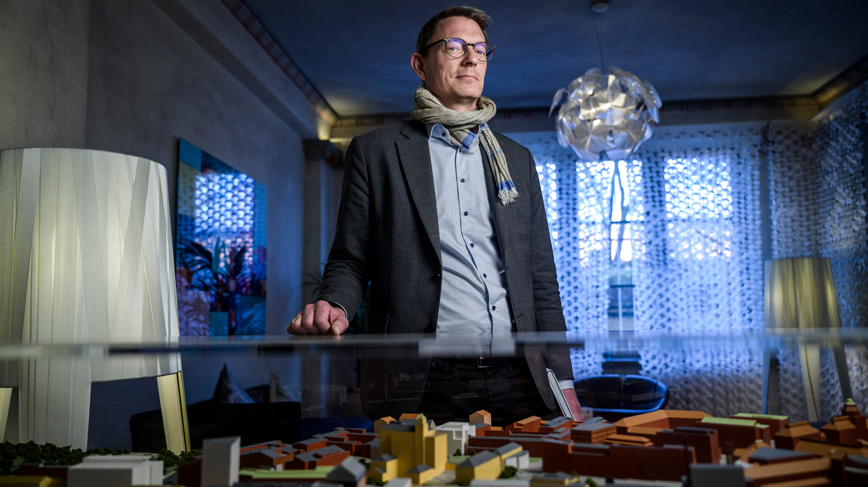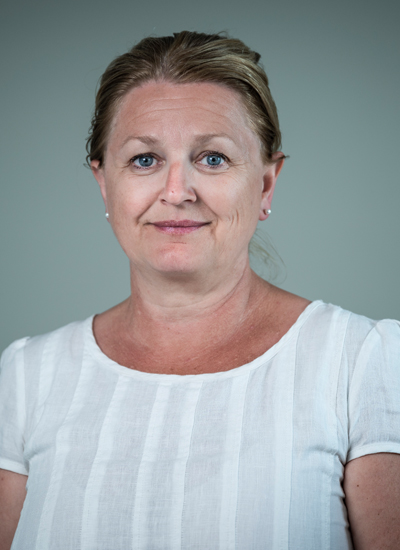“It’s great that we could help students and researchers so quickly”

A lot of people have been involved with the researchers and students from Ukraine who are now a part of KTH. It has been a team effort, and many at KTH are rightly proud.
More than six months have passed since the Ukraine task force was formed at KTH. That was three weeks into the war, and there were all kinds of questions.
“It was my first day at KTH, and a decision had been made to put together a task force to deal with all the questions that were arising. At that stage, there were plans to be able to receive a huge wave of refugees, and a lot of people were interested in helping out,” says Fredrik Oldsjö, Head of Management Office and Deputy University Director.
At that early stage, no one knew what the war would entail for students and researchers from Ukraine who had been forced to flee the country. The EU had made a decision to give Ukrainian residents refugee status, and countries across Europe raised their level of preparedness.

“At KTH, right from the beginning there was a strong sense of ‘what can we do?’, rather than focusing on the difficulties. With an emphasis on education and our social responsibility, we decided early on to base our approach on how we would like to be treated in a situation like this,” says Katarina Jonsson Berglund, Head of Education Office (EDO), University Administration.
“The Ukraine task force gave us scope to compile questions, and highlight and move forward on the challenges that arose. KTH set up a similar group during the pandemic, and we could apply a lot of the lessons learnt there to the Ukraine situation. Thanks to that, we could work fast and in a structured way.”
To begin with, the task force met once a week to find solutions and establish guidelines. Pages were set up on the KTH website to gather the information, and a student meet was planned which was held in Ukrainian.
“We acted quickly and did our best to see what our role was in this tricky situation, and where it was our responsibility to help. For instance, we decided right from the start that Ukrainian students who came to us as part of the Mass Refugee Directive would be greeted and treated as exchange students. This was long before there was a national recommendation to the same effect. So we already had clearly defined procedures in place, which worked really well,” says Oldsjö.

The Ukraine task force was also early to appoint someone to be in charge of receiving students, Katarina Jonsson Berglund, and someone for researchers, Nina Wormbs. The latter is a professor at the School of Architecture and the Built Environment, and also heads up KTH’s work with Scholars at Risk (SAR).
“Through our network for SAR, there was already a certain procedure in place for receiving at-risk researchers. There’s quite a process involved in clarifying conditions and matching a researcher to develop their potential, within the framework of KTH’s research. To date we’ve helped a handful of researchers find jobs on one-year contracts, which feels great,” says Wormbs.
Everyone agrees on how important it is that KTH has been able to get involved and make a contribution.
“This has really shown KTH at its best, and it’s been a real team effort. People have been interested in helping in all kinds of different ways, which has been such a boon. For instance, we’ve been able to hold welcome seminars in Ukrainian, as we already have staff and students who speak the language,” says Katarina Jonsson Berglund.
Fredrik Oldsjö agrees, adding:
“KTH should be proud of the tremendous spontaneous willingness people have shown in helping out and coordinating, whether it’s been fundraising or helping out with various kinds of reception activities. It’s amazing that we could help students and researchers from Ukraine so quickly, so that they could carry on with their learning and research.”
Text: Annelie Englund

